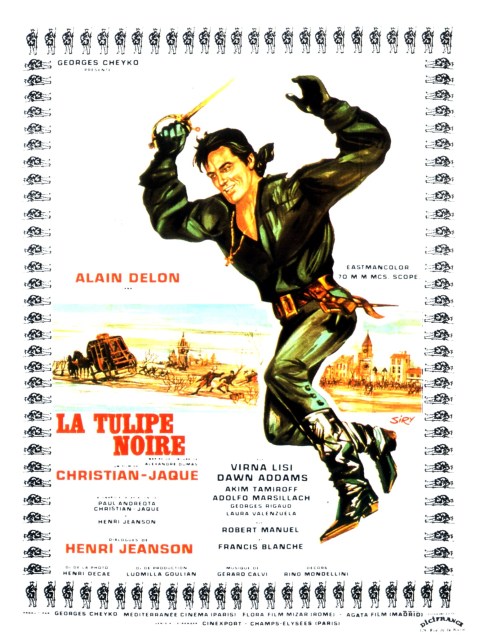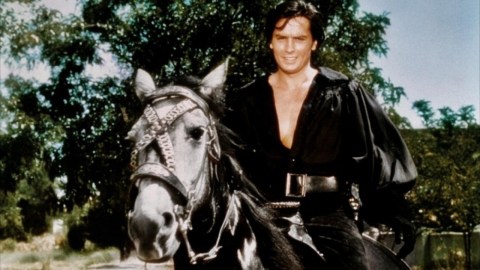17. 4. – 19. 4. 2026
The Black Tulip

 Original title: La Tulipe noire
Original title: La Tulipe noireDirector: Christian-Jaque
Production: 1964, France / Italy / Spain
Length: 115 min.
Screened:
KRRR! 2025: 70mm 2.2:1, Colours faded, MG 6ch, Spoken language: French, Subtitles: Czech, EnglishAnnotation for KRRR! 2025
When a masked bandit named the Black Tulip appears in a town in the south of France at the end of the 18th century, he is considered a hero by the locals because he robs only the rich. Behind the mask is an aristocrat named Guillaume de Saint Preux (Alain Delon), who, when injured during one of his robberies, asks his twin brother Julien (Alain Delon) to impersonate him... And since Julien resembles his brother only in appearance, a conflict about truth and morality becomes inevitable as Guillaume's true motivations are gradually revealed.
Christian-Jaque was one of the most famous representatives of post-war French popular cinema, sometimes associated with the French cinema of quality, which was later opposed by the creators of the French New Wave... led by François Truffaut. He began directing in the early 1930s and achieved his first success with the public in the early 1940s, although he made only a few films at that time. He joined the anti-Nazi resistance, for which he received the War Cross.
The Black Tulip is not the first Tulip in his filmography: his most notable work is probably the twelve-year-old Fan-Fan the Tulip (1952), for which he won the Best Director award at the Cannes Film Festival and the Silver Bear at the Berlinale. He often cast popular actors and actresses, such as Gérard Philipe as the “first” Tulip and Alain Delon as the “second”. However, both films constitute only a small part of Jacqu’s extensive oeuvre of more than seventy films.
The adventurous Black Tulip was co-produced with Italy and Spain in the spirit of the trends of the time, and relied heavily on the stardom of Alain Delon in the lead role. It became one of the most popular French films of 1964 and the tenth most-attended film in French cinemas at the time (along with films such as The Troops of St. Tropez, The Man from Rio or Fantomas, as well as From Russia with Love and My Fair Lady).